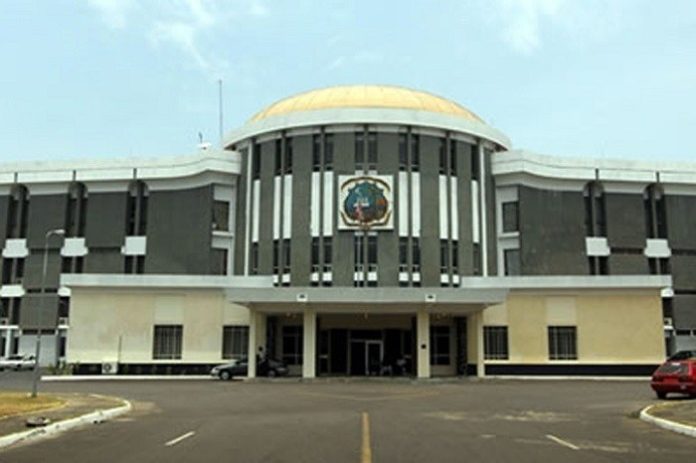By Daniel Garteh
With absolutely no time to waste both Revenue & Expenditure hearings into the 2019/2020 Draft National Budget has begun on Capitol Hill, with the Joint Committees on Ways Means Fin & Development Planning Chairman Thomas P. Fallah leading the process alongside Committees Members & the Legislative Budget Office Technicians.
The draft National budget in the tune of US$532,906,966. was submitted on Friday, June 28, 2019 by Finance Minister Samuel D. Tweah, Jr. and his Deputy Minister for Budget Tanneh Brunson to House Speaker Bhofal Chambers, in accordance with Article 34(i) of the 1986 Constitution.
According to the executive summary of the budget expenditure, compensation for employees is US$296,992,913, which is well over 55 percent of the total budget. However, this expenditure item is over US$30 million less than it was in the 2018/2019 budget, which was in the tune of US$322,672,329.
The reduction in the budget expenditure for compensation of employees reflects what Minister Tweah told a visiting IMF delegation on Monday, June 24: “What we are doing is wage harmonization, not wage cut. This is about paying people across government with same position with the same salary.”
The ‘Use of Goods and Services’ is US$72,272618; Subsidy US$430,500; Grants US$57,528,644; Social Benefits US$1,491,628; Non-Financial Assets US$43,171,500; Domestic Liabilities US$35,945,775 and Foreign Liabilities US$25,073,388.
The 2019/2020 budget has the highest domestic liabilities in recent years, and the total budget has dropped to US$37 million as compared to the 2018-2019 budget; but there were huge budget shortfalls, and with this little over U$53 million, economists are wondering whether this year’s budget meets similar fate, given the current dire state of the economy.























Comments are closed.